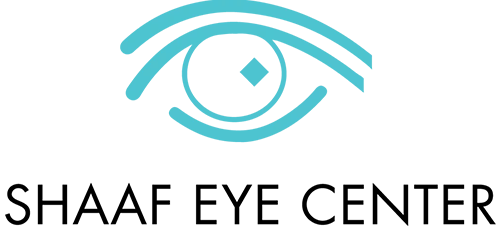Age-related macular Degeneration, Cataract, Comprehensive Eye Exam, Glaucoma, Patient Education

Every October, Vision Awareness Month serves as a reminder that healthy eyesight doesn’t just happen—it’s something we must actively protect. According to the American Academy of Ophthalmology (AAO), millions of Americans live with undiagnosed or untreated eye conditions that can lead to permanent vision loss if not detected early. What’s even more concerning is that many of these conditions develop silently—without pain or early warning signs.
At Shaaf Eye Center, we believe early detection through comprehensive eye exams is the key to preserving lifelong vision. These detailed exams can uncover hidden eye diseases long before symptoms appear, giving you and your doctor a chance to intervene early and prevent irreversible damage.
In recognition of Vision Awareness Month, we’re highlighting the top three vision issues you shouldn’t ignore: Cataracts, Glaucoma, and Retinal Diseases. Understanding these conditions—and how preventive eye exams can help—can make all the difference in maintaining clear, healthy vision for years to come.
1. Cataracts
A cataract occurs when the eye’s natural lens becomes cloudy, leading to blurred vision, faded colors, and sensitivity to glare. While cataracts are most common with aging, they can also develop due to factors like diabetes, smoking, prolonged UV exposure, or certain medications.
Title Page Separator Site title
Title. Providing comprehensive and compassionate care is our goal at Shaaf Eye Center.
Why you shouldn’t ignore cataracts:
- Vision can deteriorate gradually, making it easy to miss early signs.
- Untreated cataracts can interfere with driving, reading, or recognizing faces.
- Fortunately, cataract surgery can restore clear vision safely and effectively—but early detection is essential for planning the right time for treatment.
How a comprehensive eye exam helps:
Your ophthalmologist can detect the early stages of lens clouding long before your vision becomes significantly affected. Regular exams also allow your doctor to monitor the progression and determine the best time to consider surgery if needed.
Did you know? You can take a Cataract Self-Test to determine if you might be developing cataracts. This quick test is a helpful first step before scheduling a comprehensive eye exam with one of our specialists at Shaaf Eye Center.
2. Glaucoma
Known as the “silent thief of sight,” glaucoma damages the optic nerve—often due to increased eye pressure—and can cause irreversible vision loss if left untreated. Because glaucoma typically develops without symptoms, many people are unaware they have it until significant vision loss has already occurred.
Why you shouldn’t ignore glaucoma:
- Early stages are usually symptom-free.
- Vision loss from glaucoma cannot be reversed.
- Family history, age, diabetes, and high eye pressure all increase risk.
How a comprehensive eye exam helps:
During your exam, your doctor will measure your intraocular pressure (IOP), assess your optic nerve, and check for any changes in your peripheral vision—the areas most often affected first. Early detection through these screenings can prevent or slow further vision loss with the right medications, laser treatments, or minimally invasive procedures.
Take our Glaucoma Self-Test to assess your risk and take the next step toward safeguarding your sight.
3. Retinal Diseases
The retina—the light-sensitive layer at the back of your eye—is essential for processing images and transmitting them to your brain. Retinal diseases such as Age-Related Macular Degeneration (AMD), diabetic retinopathy, and retinal detachment can severely affect central or overall vision if not treated promptly.
Why you shouldn’t ignore retinal diseases:
- Many retinal conditions begin without noticeable symptoms.
- Risk factors like diabetes, hypertension, and smoking can increase vulnerability.
- Without treatment, some retinal diseases can lead to permanent blindness.
How a comprehensive eye exam helps:
A dilated retinal exam allows your ophthalmologist to view the back of your eye and detect subtle changes in the retina or blood vessels. Imaging technologies like OCT (Optical Coherence Tomography) can reveal early signs of disease before vision is compromised—giving you time to begin sight-saving treatment.
Why a Comprehensive Eye Exam Is Crucial
A comprehensive eye exam isn’t just about updating your glasses prescription—it’s about protecting your long-term eye health. During this exam, your doctor checks the internal and external structures of your eyes, measures your eye pressure, evaluates your retina, and identifies early signs of systemic diseases like diabetes or hypertension.
Regular eye exams are especially important if you:
- Are over 40 years old
- Have a family history of eye disease
- Have diabetes, hypertension, or high cholesterol
- Notice sudden changes in your vision
Protect Your Vision with Shaaf Eye Center
Your eyesight is one of your most valuable senses—don’t wait for symptoms to appear before taking action. At Shaaf Eye Center, we provide state-of-the-art diagnostic technology, compassionate care, and customized treatment plans for every stage of life.
This Vision Awareness Month, take a proactive step toward better eye health.
Call (760) 346-5005 today to schedule your comprehensive eye exam at Shaaf Eye Center and safeguard your vision for the future.






